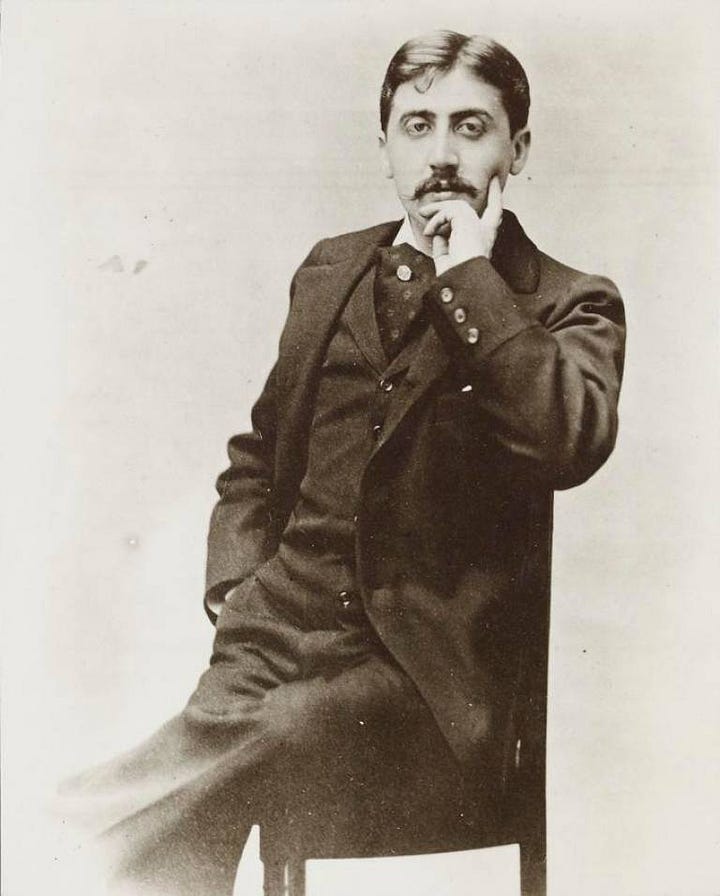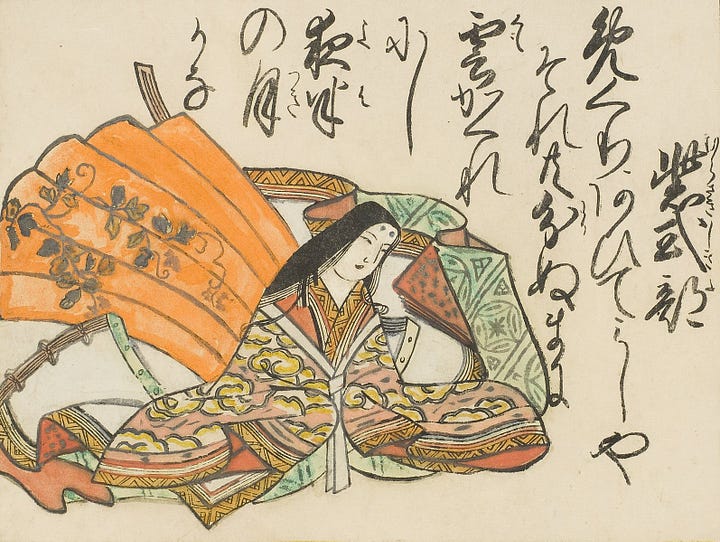Reading "The Tale of Genji" and "In Search of Lost Time" Under Professorial Supervision
Two giant novels, two professors and two colleges


I’m hardly the first reader to point out the similarities between Lady Murasaki’s and Marcel Proust’s masterpieces. Both are multi-volume books that resemble doorstops when combined, and both concern the lives and loves of aristocrats. Their authors were at once insiders and outsiders in their rarified circles, perennial wallflowers at the ball. Both books were their authors’ life’s work, and earned them enduring posthumous fame.
The Tale of Genji and In Search of Lost Time are similar in other ways too. Both have non-linear structures and long timelines that exceed their characters’ lifetimes. Both novels explore romantic desire, suffering and life’s evanescence. The changing seasons and weather exert a pull on their characters, controlling their moods. So complementary are Proust and Murasaki that they seem at times to be conversing with one another across the centuries:
Proust: When from a long distant past nothing subsists after the things are broken and scattered, the smell and taste of things remain
Murasaki: Real things in the darkness seem no realer than dreams
Though nine hundred years separated their births, Murasaki—introverted and unpopular at court, in part because she was always writing— would have found a kindred spirit in the sickly, nonconformist Proust. She would have loved his habit of giving parties he didn’t attend, his cork-lined bedroom, and his nocturnal writing habits. Privacy didn’t exist in the Heian Period (nor did a word for it), yet Murasaki managed within the fishbowl of the Imperial Court to create an entire world. Proust, from his bed in the 16th arrondissement, did the same, yet he never heard of The Tale of Genji. The first translation (into English, by Arthur Waley) was published three years after his death in 1922.
The books’ similarities even extend to their current status: while most people have heard of both, few have read a word of either. Among those who have, the first volumes—or excerpts from them—are usually the limit. I’m not sure I would have read further if not for taking college literature courses on both, but as a result I’ve read the lion’s share: five of six books of Genji, and five of seven of In Search of Lost Time. Though I’ve re-read only parts in the decades since, my college memories—like Proust’s madeleine—are indelible.
Keep reading with a 7-day free trial
Subscribe to Under the Hollywood Sign to keep reading this post and get 7 days of free access to the full post archives.

